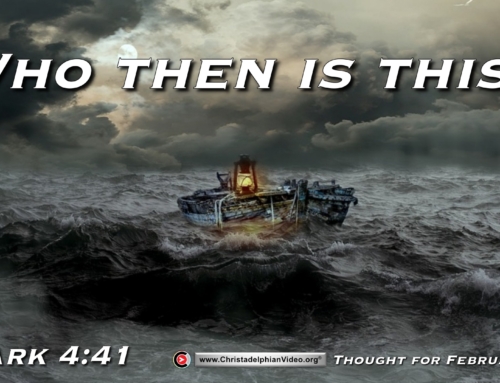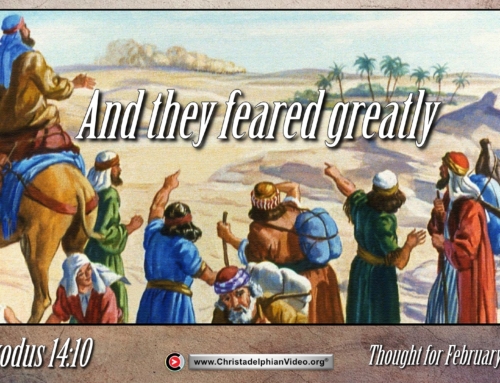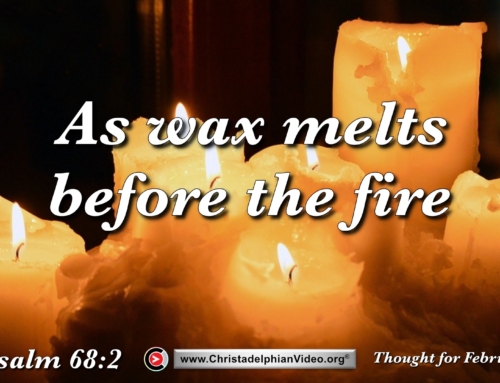Today’s readings…. (Ruth 3), (Ruth 4), (Isaiah 45), (Revelation 1), (Revelation 2)
Today we started reading the thought challenging last book of the Bible. At the start the symbolic language is clearly explained, assemblies of believers (which is what the word for ‘church’ means) are called “lampstands” (1 v.20 – candlesticks in the old A V – places where light should shine forth). The book is “a revelation of Jesus Christ, which God gave him (John) to show to his servants the things which must soon take place.” [1 v.1]
‘Soon’ is as seen from God’s perspective! It was 2,000 years from Abraham to Christ! God’s angel told Abraham when he stopped him from sacrificing Isaac, “God will provide for himself the lamb for a burnt offering, my son” [Gen. 22 v8], yet it took him 2,000 years (in man’s time frame) to provide it. And here we are 2,000 years later and …?
In this last book the answer is revealed – often by linking together messages God gave to the prophets, as we are reading in Isaiah. The 2nd chapter shows that our Lord and Saviour is the one “who walks among the seven golden lampstands” [v.1] and because of that he can say to them all, “I know your works …” [v.2, 19, etc] The first church, at Ephesus is praised for their “patient endurance , and how you cannot bear with those who are evil, but have tested those who call themselves apostles, and are not, and have found them to be false. I know you are enduring patiently and bearing up for my name’s sake, and you have not grown weary” [v.2,3]
Those words are all positive and encouraging – and it comes as a shock to then read, “But I have this against you, that you have abandoned the love you had at first. Remember therefore from where you have fallen; repent and do the works you did at first. If not …” [v.4,5] The works of those who bear Christ’s name are only complete when their “works” show the love they profess. The more intensely we develop our relationship with Christ, a true loving relationship, the more this will result in actions. It is dangerous to only do things from a sense of duty.
The comparison to the message to the church at Pergamum [v.12-17] is significant. This church is contending with the influence of “Satan’s throne” which must be a centre of evil in their city “where Satan dwells”[v.13] Despite this, “…yet you hold fast my name and you did not deny my faith even in the days of Antipas my faithful witness who was killed …” We reluctantly realize that opposition and danger in one form or another is ‘good’ for us. Revelation is a message for all generations and our final thought is in v.25 “… hold fast what you have until I come” Surely that is a message for today.







Leave a Reply